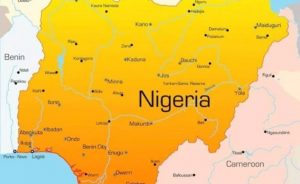Togo: Tiny Togo Playing in a Big Arena

Behind last week’s U.S-brokered peace deal between Rwanda and the Democratic Republic of Congo is a hidden storyline: Togo’s quest to become West Africa’s Rwanda.
In Washington, Togolese Foreign Minister Robert Dussey attended the signing ceremony with U.S. Secretary of State Marco Rubio, representing Togo’s role as African Union mediator.
Tiny Togo is playing in a big arena. The peace deal between Rwanda, one of Africa’s fastest-growing economies, and the DRC, one of the continent’s biggest markets, calls for respect for each other’s territory, an end to support for armed groups and military action, and a joint security body to maintain peace.
The accord also sets out a regional economic integration framework in which the DRC and Rwanda will cooperate to cut risks to clean-energy mineral supply chains and advance hydropower, gas production in Lake Kivu, and minerals processing, possibly involving American investors.
Togo’s ambition to emulate Rwanda seems improbable. It’s a sliver of a country squeezed between Ghana and Benin, with a 32-mile coastline on the Atlantic. Yet for the past few years Togo has quietly built ties with Rwandan President Paul Kagame, capped by an official visit to Kigali in January by Togo’s leader, President of Council of Ministers Faure Gnassingbé, and a return trip in April for the Global AI Summit on Africa.
In late 2021, Rwanda agreed to help Togo develop a modern transport system using cashless payments and create a “culture of excellence” in public service delivery. In 2022, French-speaking Togo followed Rwanda into membership in the British-led Commonwealth at a summit in Kigali. For Rwanda, Togo represents an extension of influence into West Africa.
In welcoming Gnassingbé in January, Kagame noted “the good cooperation we have for a long time between our two countries that we want to deepen further as we continue working together.”
At the Kigali tech summit, Gnassingbé adopted Kagame’s visionary style. The Togolese leader told the audience that Africa should focus AI on health, education and agriculture, while building “digital sovereignty” to avoid dependence of foreign platforms and leverage its culturally diverse data. “Our data should be better collected, better structured, and valued and protected as well,” while being used to train global AI models, he said. And the president called for “massive” funding and instruction to help make young Africans competitive in the AI race.
For now, more conventional economic gains top Togo’s agenda. The African Development Bank is financing an agro-industrial hub for processing rice, soya, sesame and other farm goods. And Gnassingbé crowed on Facebook recently about the 2,200 jobs created by a Sri Lankan textile investment as a victory for his industrial policy and “Made in Togo” initiative.
“The choice of Togo is no coincidence,” said Charlie Komar, CEO of Charles Komar & Sons, at the opening of the sprawling factory last week, according to the Sunday Island newspaper. “We chose this country because we see a rising nation, a government focused on economic stability, infrastructure development and investment appeal.”
Score that as a win, yet there’s trouble brewing for 59-year-old Gnassingbé at home after ruling Togo for 20 years. Protests erupted in Lomé on June 26 over a constitutional change that sidelines voters in choosing the country’s leader and could keep Gnassingbé in power for life. Eight in 10 Togolese support presidential term limits and about three-quarters prefer elections to choose leaders, according to an Afrobarometer survey.
And while the economy has grown 5 percent a year on average since 2013, that expansion is “insufficient to support rapid poverty reduction” and is undercut by “stagnant agricultural productivity” that limits climate-change resilience, says the World Bank. What’s more, Togo has leaned on Turkish support to repel attacks from al-Qaeda-linked militants operating from the Sahel, according to a U.S. Army report.
Oddly, even as it helped achieve the peace accord, Togo was one of seven countries whose nationals were deemed high risks and hit with entry restrictions by the United States in a June presidential order. (Nationals of 12 other countries, seven in Africa, including Sudan and Somalia, are barred from entering America.) The White House said about one in five Togolese have stayed in the United States beyond the limit of their B1/B2 business and tourism visas and a third have overstayed visas issued for academic studies, vocational training and exchange visits.
Perhaps the curbs will prompt young Togolese to shift their gaze 2,000 miles eastward toward a model and inspiration in the hills of central Africa. Doors may be closing in America, but they seem wide open for Togo in Rwanda.
By Edward DeMarco



